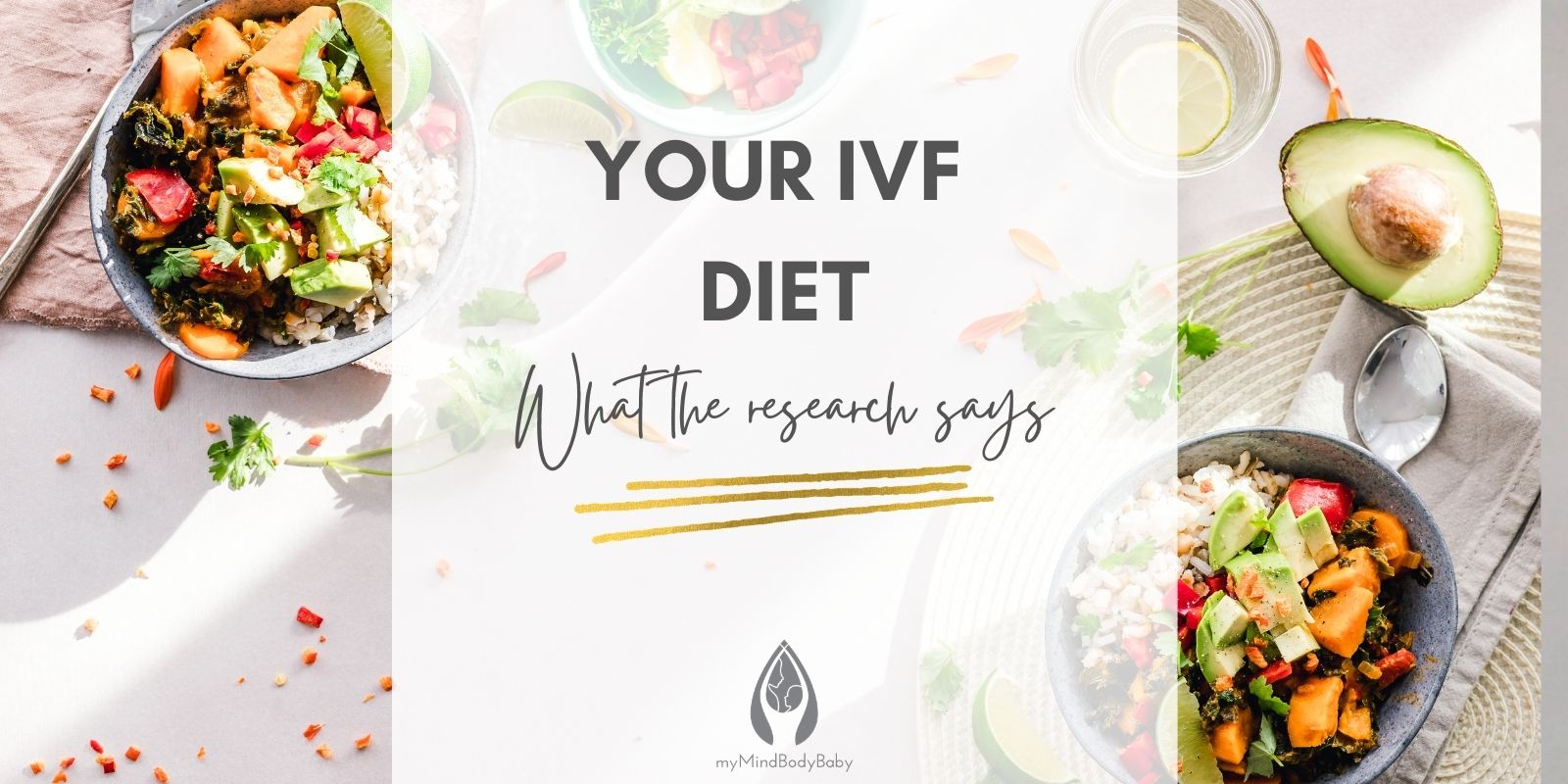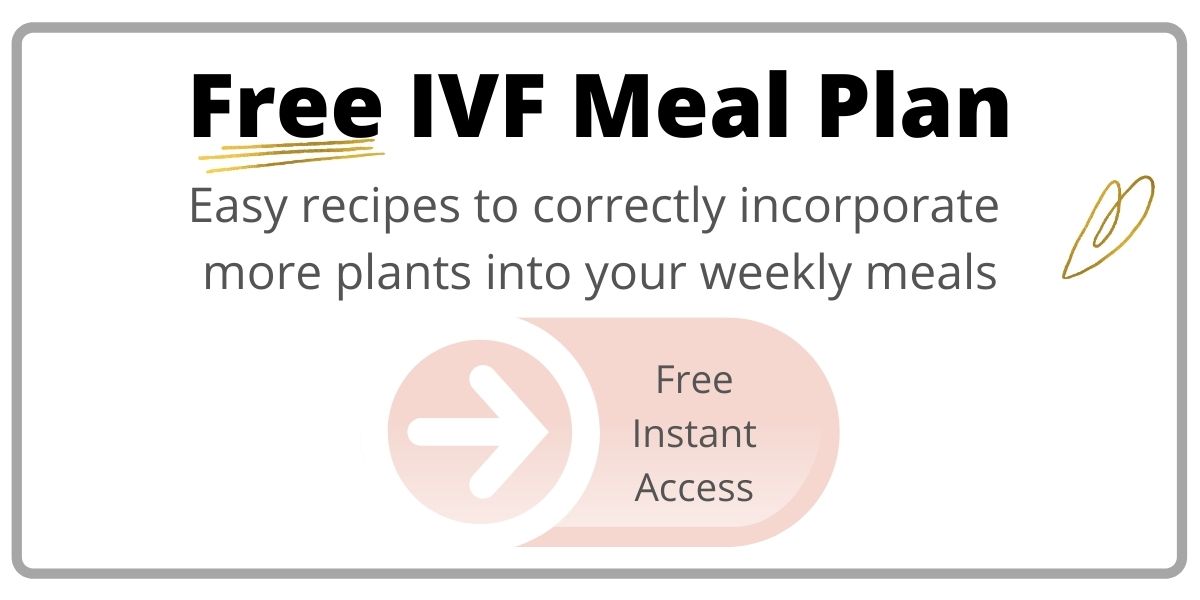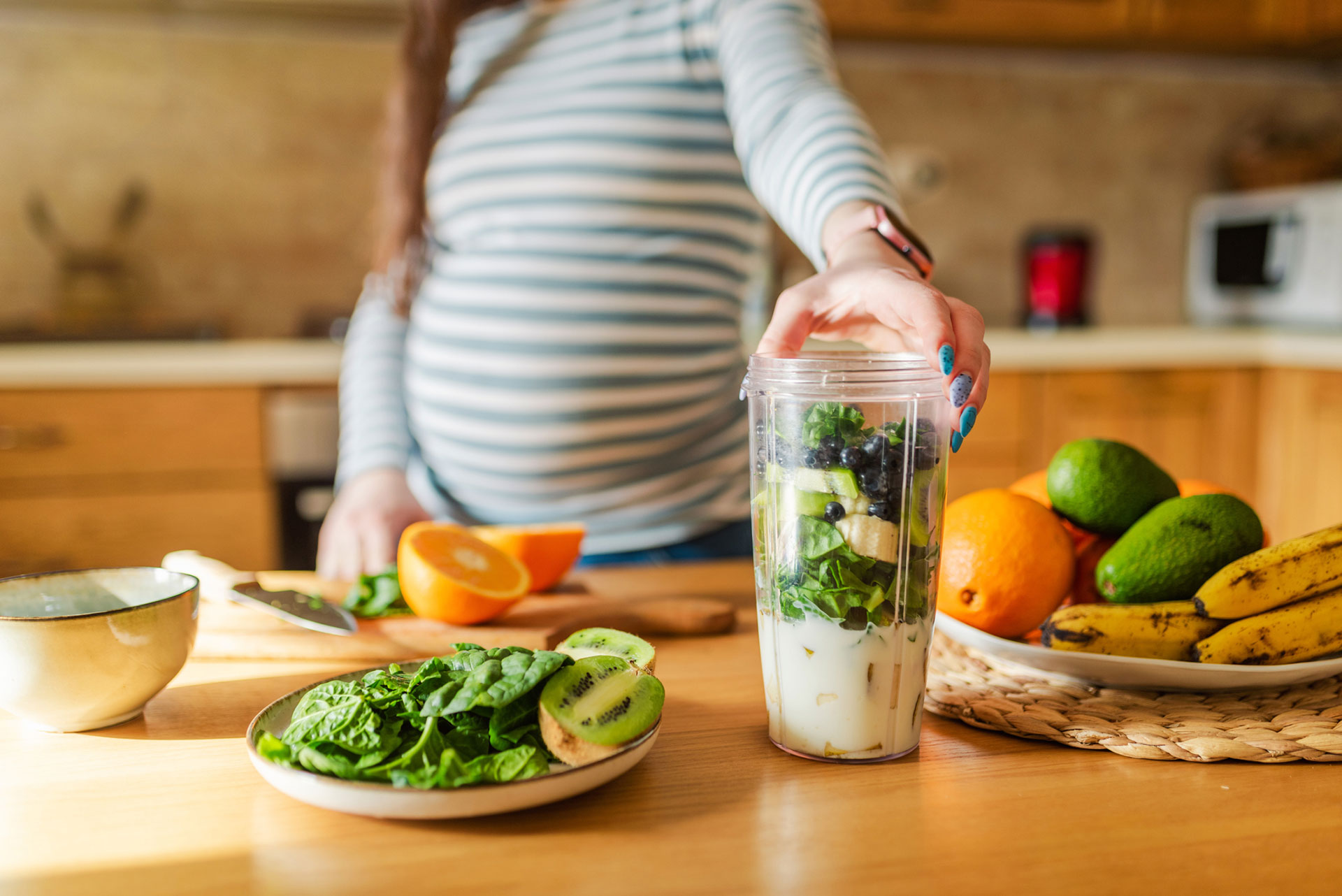“Your IVF Diet: What the Research Says” | myMindBodyBaby
It’s like being at the wrong end of a batting cage.
Infertility feels like you are playing a never-ending game of whack-a-mole.
For those who are making their way through the ever-changing twists and turns of fertility challenges, and are now preparing for IVF, navigating the physical and mental well-being obstacles can feel overwhelming – like you have no control. I get it.
Hi, I’m Michelle, nutritionist, fellow-fertility warrior, and grateful mama of two. I spent a lot of time prior to my first IVF cycle Googling my little heart out – trying to find the secret sauce to making it successful. Even as a nutritionist it was overwhelming trying to piece it all together. Exactly how much protein did I need? Was I getting enough omega 3 fatty acids through my diet and prenatal supplements? What kinds of foods were best for IVF? My questions seemed endless.
I did a lot of research and I want to share the key points with you. We want to help take some of the stress of your shoulders so you can focus on feeling more optimistic and hopeful about your impending IVF cycle. The recommendations listed below are from the most recent women’s fertility research, they are what fertility clinics recommend to their patients, and they are the basis for our myMindBodyBaby meal plans.
Key IVF Diet Recommendations
1. Keto or Carbs?
Very simply put – unless you have a medical reason and have been instructed otherwise by a healthcare professional, carbohydrates can and should be a part of your healthy fertility diet. Ditch the extreme diets and opt for an approach to eating that is well-rounded and is based on research. As a nutritionist now specializing in fertility I recommend the much researched Mediterranean approach as your fertility-friendly diet.
In this study, a greater observance of a Mediterranean-style diet while going through IVF was associated with a higher likelihood of achieving clinical pregnancy and live birth among non-obese women <35 years of age. And in this study, more embryos were able to be obtained via IVF when the participant followed a Mediterranean diet.
A good rule of thumb to follow: ½ your plate should be vegetables, ¼ protein, and the last ¼ some type of quality carbohydrate (see below for list). You do not need to ditch carbs to conceive. It’s the quality of those carbs that count!
What is the Mediterranean Diet?
It is characterized by:
- daily consumption of fruits, veggies, whole grains, and healthy plant-based fats
- weekly intake of poultry, fish, nuts, and beans
- moderate portions of dairy
- limited intake of red meat
2. Forks over Knives
Speaking of meat consumption – I’m not just talking about consuming an abundance of colourful, fresh, antioxidant-rich foods (which I am, too), but I’m talking about subbing out SOME of your meat consumption for plant-based proteins. Notice how the Mediterranean diet promotes limited red meat and weekly consumption of fish, poultry, and eggs? You don’t need to be eating meat on the daily.
What the research is saying about meat and fertility. In one study, “consuming 5% of total energy intake as vegetable protein rather than as animal protein was associated with a more than 50% lower risk of ovulatory infertility”. This is BIG news for those struggling with ovulatory infertility!
Here is a simple chart on how you can start to make some easy substitutions.
| Animal-Based Proteins | Plant-Based Proteins |
| Fish | Hemp Hearts |
| Chicken | Lentil and Beans |
| Poultry | Nuts and Seeds (raw) |
| Red Meat | Non-GMO Soy Products like Tofu and Tempeh |
I’m not telling you to adopt a vegan lifestyle, but if you have an IVF cycle coming up I recommend replacing a few meals a week with some plant-based options.
If you have meat at dinnertime 7 nights a week, perhaps you can start to replace meat for lentils or beans one or two of those nights.
Need some help incorporating this into your diet? Have no fear, I’ve put together some super simple plant-based recipes to get you started…and the best part, it’s FREE!
3. Slow carbs vs fast carbs
There is a ton of research that proves that while carbs are important, simple carbs (aka processed sugar) have no place in a healthy fertility diet, especially during IVF. Processed carbs, like the ones listed below, mess with your hormones, create inflammation, cause fat storage, can impact sleep, and overall can make you feel lethargic and unwell. Now is not the time to feel unwell from your diet! Now is the time to optimize your nutrition intake in preparation for transferring that precious embryo.
So what does the research say?
This study shows us that high carbohydrate foods/drinks (aka sugar) were associated with lower fecundability (the ability to get pregnant on a given cycle).
Additionally, this prospective study shows us that “The amount and quality of carbohydrate in a diet may be important determinants of ovulation and fertility in healthy women.”
Remember, the Mediterranean diet is characterized by WHOLE grain intake – not simple, processed, fiber-free, hormone-wreaking grains (like the ones listed below).
| Slow Carbs (the ones you want!) |
Fast Carbs (the ones to avoid!) |
| Yams, sweet potato, beets | Pop, alcohol, sweetened beverages, juice |
| Brown or wild rice | Candy, milk chocolate |
| Quinoa | Syrups, condiments containing sugar |
| Lentils, beans | Cereals (processed) |
| Whole fruits (fresh, in moderation) | Pastries, cookies |
| Vegetables | White flours (pasta), white rice |
Next steps
If you are embarking upon an IVF cycle, start to focus on a Mediterranean style of eating, and don’t skip the carbs (just make sure those carbs are quality “slow carbs”). If you are a meat-eater, it’s time to consider replacing some of your animal proteins with plant-based ones… it’s not that hard, I promise 🙂
Plus, this done-for-you 1-week meal plan also contains the smart carbs listed above – a perfect start for your IVF preparation. Download now!
Looking for more help? If you want a done-for-you plan on how to eat during IVF, we have taken all the latest research and combined it into easy to follow Mind + Body system tailored specifically for IVF. This program provides day by day food, fitness, and mental well-being support to help you take control of the “controllables” in your life while undergoing IVF. Click this link for more information.





